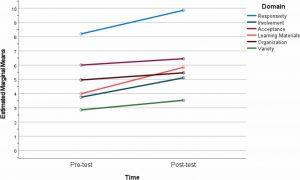Prenatal alcohol exposure is a serious risk to fetal development, and South Africa has the highest documented prevalence of Fetal Alcohol Spectrum Disorders in the world. In response to the public health crisis, a singular early intervention study has addressed the relevant developmental problems among children who have been prenatally exposed to alcohol.
This study, described by Kalberg et al., used caregiver-child dyad and a relationship-based intervention model to promote secure attachment and enhance development.
This intervention-the Heart Start Model-engaged in the improvement of the home environment and emotional bonds between children and their caregivers. The frequency of visits by interventionists was every other week to coach the caregivers on child development and child activities that reinforce motor, cognitive, and social skills. The findings revealed that the program caused significant gains in both caregiver responsiveness and child developmental outcomes, especially among children whose household alcohol exposure was severe (Figure 1).
Although children with heavy prenatal alcohol exposure showed poorer development in early periods compared to others with lower exposures, this intervention realized remarkable strides in many developmental domains. This relational intervention therefore shows that early-therapeutic intervention can have moderating effects on some of the long-term adverse effects of PAE and hence offers a degree of hope that lives of children with FASD can be improved in high-prevalence areas such as South Africa.
Journal article: Kalberg, W. O., et al. 2024. Relationship-Based Intervention for Children who were Prenatally Alcohol Exposed in South Africa. Research in Developmental Disabilities.
Summary by Faith Oluwamakinde











